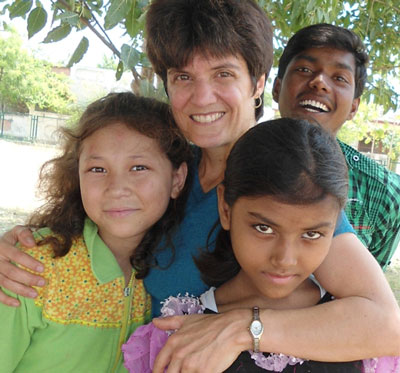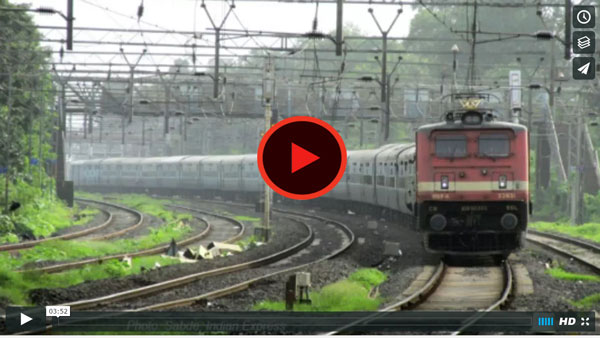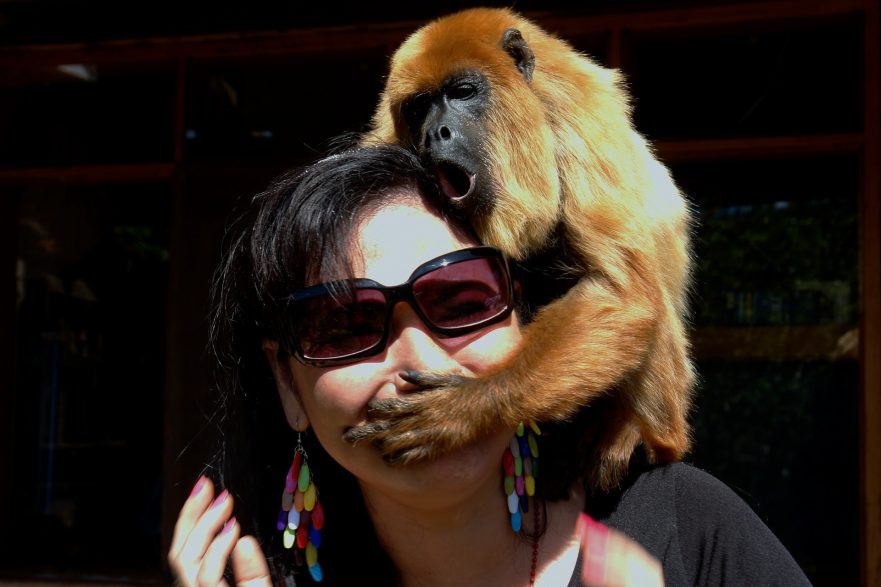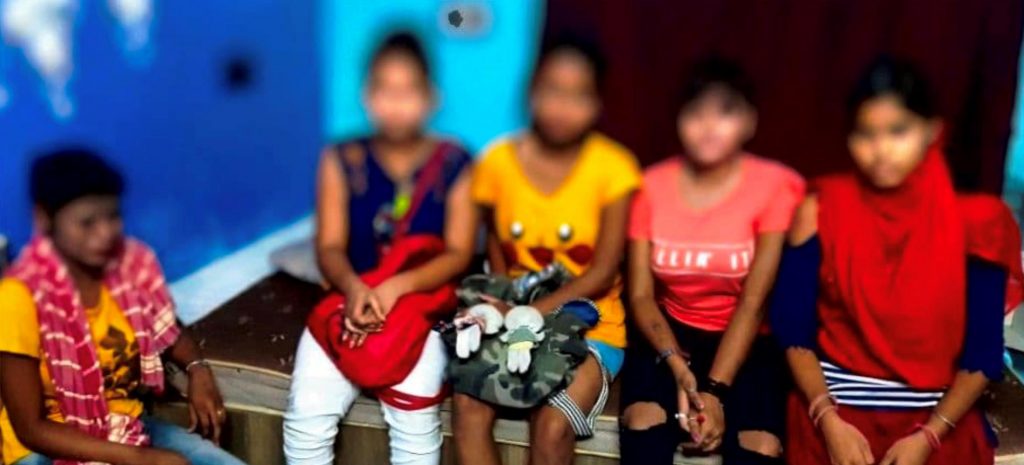Here’s a snippet from “Treasures in Dark Places.” – release date Jan 17 2017
The wadded scar tissue of a butchered amputation trembled as with her remaining hand she thrust toward me a steel bowl, shaking a few coins in the bottom. Though less than twelve years of age her face no longer expressed the softness of a child nor even the femininity of a girl. Blackened by an amalgamation of sunburned pigment and street grime streaked with rivulets of sweat, her cheekbones gave way to bloodshot eyes sunk deep in her skull. Beggar by day and sex slave by night, she had been debased to a robot existing for the lewd pleasure of her torturers. Hardened by pain and abuse, not a shred of hope remained in her once-lovely face. The spark of life had drained from her eyes, now cold black pits devoid of life. Physically and emotionally she had been twisted and maimed, made into a beast, spirit broken, will and feelings decimated. Hers was a cold existence bereft of love, stripped of dignity, entombed while yet living.
“Jyoti!”
A voice made its way to my ears through the din of horns and bus engines and hawkers shouting their wares. Emerging from my entrancement, I remembered where I was. The bus stand. With my Indian friends. Setting out for a remote village.
Across the crowded street Vincent’s lanky frame filled the bus entrance. He motioned with his hand. “Hurry! Bus is leaving.”
The engine gunned – the driver’s “all aboard” signal.
The girl remained rooted, staring at me, bowl extended. Like the desperate fingers of a drowning wretch her eyes reached to the core of my being, fastened themselves there and held me. To pull away would rip my heart in two. My soul was engulfed in the horror that composed her life. What could I do? How could I rescue her? I couldn’t. I was helpless.
The bus horn blasted – “last call.”
“Sister Jyoti come NOW!”
My hand made an impulsive dive into my backpack’s front pouch but stopped short. The brothel owner would relieve her of the day’s coin collection the moment she returned for night duty. Instead I yanked a banana from the bunch procured moments earlier from a hawker. At least she could eat a banana. With regretful reverence I placed my offering in her bowl, then tore myself away. Legs propelled my body to the bus, but my soul had been taken captive, utterly disturbed and forever, irreparably infected with the vision of this human tragedy.
The Roadways bus jolted and banged along a narrow strip of broken blacktop, its battered steel frame held together with half-stripped bolts. Swerving or screeching to an abrupt slowdown every few seconds it narrowly avoided a continuous stream of hazards including cyclists, pedestrians, goats, carts pulled by oxen, and crevasses in the pavement sufficient to snap an axle. My native friends had insisted that I occupy the prime spot on the bench we had managed to secure – the window seat. Even so, four of us were crammed into a space made for two and a half. Our fourth team member’s left-most pelvic bone clung precariously to the last inch of seat, his knees enduring the pushing and shoving of those packed in the aisle like upright sardines. The 20-pound video projector, too precious to risk leaving with the rest of our gear up front in the bus cockpit, occupied mine and Janardhan’s laps and by the second hour, had rendered my legs numb. I gleaned valuable millimeters of extra body room by letting my elbow protrude daring inches beyond the half-open window, but at risk of losing it to a passing vehicle. Here in northern India the game of “chicken” has been perfected and refined to an art form and I had by now given up the white-knuckles-cringe-and-wait-for-the-crash saucer-eyed terror that grips rookies at their first spin on an Indian road.
A diagonal crack bisected the thin slab of glass constituting my window. Loosely fixed in a metal track, it rattled back and forth at every jolt and jounce but managed not to shatter. On the seat back ahead of us ripped upholstery exposed the seat’s urethane innards and provided a convenient pocket where other passengers had deposited candy wrappers, empty chewing tobacco packets and cigarette butts.
The roar of the ancient diesel Tata died, replaced by the tortured screech of shoeless brakes hitting the drums. The bus rocked to a near standstill, rolled forward and bumped down off a ledge. Then the engine gunned and we lurched forward once more. Pavement behind, dust billowed up on either side of the lumbering steel box, obscuring vision. The monsoon had long passed and not a drop of precipitation had touched this dirt road in weeks. Though passengers dutifully slid their windows shut, the powdery brown haze still boiled in, blanketing us with grime. But hardly a cough or sneeze was heard for men had already fished in their pockets for rumals and women had engaged the ends of their saris. In moments the brown hands of the 100-some passengers on the 38-seater bus pressed makeshift dust masks over nose and mouth and continued their ride unflurried.
Krishna leaned across Janardhan and me to peer out the window. Scanning the landmarks, he searched for a clue to our whereabouts. Soon he exclaimed, “Aa gaya, chalo!” We had arrived, and there was no time to lose because exiting the bus is the most difficult part of the ride.
Seated on the aisle, the job of plowing the way fell to Vincent who enjoyed the advantage of unusual height for an Indian. From my position by the window the task of squeezing even a slender body past the solid mass of humanity clogging the full length of the aisle appeared futile. But in India, whether fitting people or vehicles through an impossibly tight space, another inch can always be found. Nobody says “Excuse me” because such etiquette is superfluous in a world with no room to step aside. When the bodies involved are metal back-and-forth maneuvering eventually results in the two vehicles managing to scrape past each other. When bodies are flesh, space is created not by maneuvering but by squishing. Shoulders provide a culturally acceptable means of creating inches where none exist. So Vincent pushed himself into the aisle-standers and the rest of us followed with our noses in one another’s backs to preserve those precious inches he created. Janardhan clutched the video projector against his chest. Thus we progressed steadily forward until at last I glimpsed ahead, protruding above the press of black scalps, a welcomed sign – the vertical steel pole marking the exit.
The bus shuddered to a halt and passengers piled out, jostling and shoving and tripping over feet, oblivious to whether the person they pushed were an old lady or a child. Making ourselves thin as possible against the front partition of the bus to avoid being trampled, Janardhan transferred the video projector to me. Mindful of his near-complete blindness, it had been previously agreed that I would transport the fragile piece of technology down the stairs while he served as rear-guard to prevent me being shoved. Meanwhile Krishna and Vincent hoisted the rest of our gear onto their shoulders and we piled out into welcomed fresh air and elbow room.
Teenaged Krishna’s bright eyes assessed the luggage and the man-and woman-power present then swiftly began dividing the goods into four piles. These villages were his home and the worn sandals precariously held to his calloused feet by a single toe loop knew the rocky paths. We stood at the edge of the Gangetic Plain where fertile fields and spreading Banyans gave way to rocks and plateaus and dust. Naxalite gangsters ruled this territory and terrorized poverty-stricken villagers and the police folded to bribes partly out of convenience and partly to prevent their wives becoming widows. No buses or rickshaws traveled between here and Krishna’s village, so foot power would have to suffice.
“Saman zyada hai, bhaya,” muttered a puzzled Krishna who couldn’t decide how we would transport one particularly cumbersome element of our gear, the 60-pound generator. After a good deal of discussion a decision was reached. Vincent and Janardhan would trade off lugging the generator and a backpack bulging with rolled-up sheet, rope, stabilizer and extension wires while Krishna and I managed with the rest which included, besides the projector, a two foot speaker box, amplifier and mic and a jug of kerosene. So off we trooped lining out behind our guide, dust poofing rhythmically from beneath sandals. Squinting into the scorching afternoon sun, sweat cascaded down our faces and its gritty salty rivulets found their way into our mouths. The dupatta scarf, an essential element of feminine attire in rural India, added unwelcomed layers of insulation across my shoulders and my neck itched desperately beneath its sweat-soaked polyester. Rocks in the path occasioned whoever trod immediately ahead of Janardhan to call out “dekho JD, patr!” JD bent his face downward straining to see the hazard ahead. Though slowing and stepping carefully he still usually stumbled on the rock. Even so he hummed a tune, his undefeatable optimism brightening the air.
The rest of us joined in, our spirits rising in celebration of the One who had freed us from bondage, who had loved us unto death and triumphed to give us life…the One whose love and salvation a new village would receive tonight for the first time since the world began.
After an hour or so the frequency with which Vincent and JD traded off carrying the generator attested to their growing fatigue and my shoulders ached from the weight of the projector, encased in the mountaineering backpack Mom had ingeniously redesigned to fit it. Our path skirted a bluff and crossed a field then disappeared into a shady grove. Wherever there is a bunch of trees on the Indian plain, there is also a village.
The narrow path wound between mud huts stuccoed with the image of an occasional god or goddess, the lone color amidst browns. Bony cows with bulging bellies lazily chewed their cud. Ponderous buffaloes, black hairless hides twitching to repulse the occasional fly, eyed us from their three-foot tethers. Goats with ever-mischievous motley-colored faces and tiny mouths and nimble feet darted here and there searching for morsels that nobody else considered edible.
Ladies squatting in the doorways of their huts sifted tiny pebbles out of the evening meal’s rice or pulverized spices between two stones. Skinny-armed toddlers with wide, hungry eyes and bloated bellies watched us from beneath thatched eves. Their parents hoped the black string around their waist and heavy mascara smeared around their eyes would fend off the demons. Two boys of about five ventured out as we passed. They wore buttonless shirts that may have once been a color. Man-sized belts wrapped twice around suspended pants with broken zippers. They tagged along behind us, brown faces full of timid curiosity.
Men hovered in the shadows, weathered and hardened from relentless labor. Their dark eyes stalked us from beneath heavy brows emanating a mistrustful chill. Were JD able to see their faces, he might have maintained a degree more reserve in his greeting. Instead he grinned and waved and called out in the local dialect, “Bring family and friends to village square at seven o’clock. You receive ocean of mercy!”
The children gained confidence and more joined the troop. Shouting and jostling they trotted behind appealing for further details. We heightened their curiosity with a provocative “Come and see!”
I thought any moment we’d arrive at Krishna’s home, but my optimism dwindled when he marched on with hardly a sideways glance and no offer to explain. My mastery of Hindi still insufficient to afford much conversation, the discipline of “wait and see” proved more practical and less embarrassing. So I stewed in my questions as out the other side of the village we tramped.
Our tail of children halted at the village edge as if having met an unseen boundary. For a few moments they stood gazing after us then cavorted back to their huts. On we trudged, leaving the village behind.
Before us stretched a deserted wasteland, barren of grass and treeless apart from an occasional shrub, littered with garbage. The ground was not sandy but packed mud adobe-hard and scarred with gorges cut by water. This was not a desert but a flood plain. Ahead materialized green cattails and beyond them, sparkling in the final afternoon rays of sunlight, flowed a great river. Still there wasn’t a sign of civilization. The unasked questions buzzing in my brain increased. What business did we have in the community dump? Why had we left behind the people for whom we’d come?
“Jaiiiii Masih kiiiii!” A voice strong and jubilant boomed across the plain. A man approached whose personae struck me as that of Moses descending Mt. Sinai. His face shone with a radiance from deep within and his smile injected me with a thrilling rush of the proximity of heaven. He strode toward Vincent who responded with another “Jay Masih ki!” – “Victory to Christ!” – the Christian adaptation of the traditional Hindu greeting “Victory to Ram.”
The men embraced with hearty thumps on the back. “Moses” acknowledged Krishna with a fatherly squeeze before turning to the oddball – me.
“Saroj Bhaya,” announced Vincent, “This is Sister Jyoti. Sister Jyoti, meet Brother Saroj.” Not long into my foray to India the natives had bestowed upon me the name Jyoti which means “Light.” “You brought light into our darkness,” they said. “We were alone in our vision to reach our homeland here in the Ganges Plain. Missionaries came and did their best, but they didn’t pay much attention to us. They put their own faces out front. But you believe in us, the native people. You realize the time has come for us to reach our own people. He has used you to bring His light into the darkness of our land. Together we will rescue the people from oppression and slavery.”
And so here I was. But at this point having arrived only a few months ago, my role was unclear. For the time being, the natives perceived the video projector I’d brought over to be the greatest piece of technology since the wheel, and the videos I’d acquired in Delhi now fueled journeys to new villages, in which I felt privileged to participate. My primary contribution involved handling the video projector. Having operated no gadget more sophisticated than a bicycle, the sleek black piece of futuristic technology intimidated them. So I enjoyed my little niche as the tech-savvy American lady with the cool equipment by which a whole village could imbibe the message of God’s love and salvation.
“Chalo, ghar!” Saroj beamingly summoned us to follow him to his house. Vincent made a fatigued move to pick up the generator but Saroj beat him to it. Hoisting it to his shoulder he running-walked ahead of us, excited to introduce us to his family. “Give me that!” Vincent tugged on my projector pack. Relieved of his own burden, he would have none of a female bearing more than himself, but I hesitated. Whoever awaited at Saroj’s house might now perceive me as the burden-less, pampered, wimpy foreigner. Vincent persisted so I reluctantly relinquished the pack.
Traversing the river bank I scanned the terrain in search of the house that I now understood to be our destination. But all that appeared were cattails and water-hewn mud ditches and rocks and the occasional rodent scurrying for cover. Krishna had disappeared but now reemerged on a rusted-out cycle that creaked with every depression of the pedals. Onto it they loaded the generator and Krishna walked the cycle while Saroj balanced the load.
Ahead, camouflaged against the brown and green, almost concealed behind a rise, stood a chicken coop. Barely five feet at its peak, the walls were roughly woven from the reeds bobbing along the river’s edge. Supported by tree branches for rafters, the same reeds composed the roof. Old clothes and plastic bags served as shingles, held down by bits of rubbish collected from the nearby garbage dump. When afforded freedom the cackling fowl make good use of daylight hours to range far and wide scratching for edibles so the absence of chickens was easily explained. “Odd though,” I thought, “that a chicken coop would have nothing but a rag for a door. The foxes and weasels around here must enjoy fine dining.” Too small to house a cow, I reconsidered the possibility of its use as a goat shed.
Sweaty grime had collected between my toes and I imagined the pleasure of sitting down and dipping my feet in some cool water. I strained my eyes on ahead, intent on glimpsing the house. “We must be getting close since we’ve come to where they keep their animals,” I thought. “Maybe their house is a riverfront.” My mind wandered. There it was. A smooth wooden dock. I gratefully unbuckled my sandals and plunged head first into cool waters. Then I crawled out, wrapped myself in a towel and lay back in an armchair while imbibing an icy Coke.
“Hallooooo!” Saroj bellowed a greeting.
I snapped back to reality. My comrades ahead had drawn up in front of the chicken coop. Before I could fish my senses out of the imaginary armchair, from the rag-covered doorway of what I had supposed to be an animal shelter emerged a woman and two scruffy children clutching her dress…






